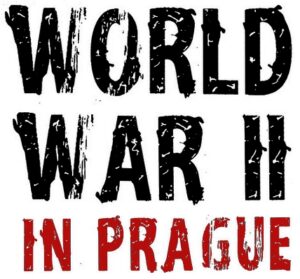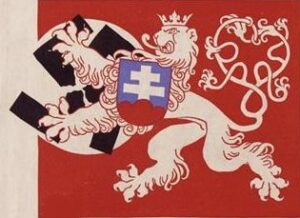The ambiguous role of Prime Minister Alois Elias in resisting the Nazi occupation has been the subject of much debate. While the Protectorate government at the time was clearly collaborationist, Elias himself attempted to uphold the integrity of the Czech people. Recently, new evidence has emerged suggesting that Elias was involved in a plot to assassinate prominent Nazi journalists, which casts doubt on the idea that he was a traitor.
On October 2, 1941, news spread throughout the country that Prime Minister Alois Elias had been executed. Despite collaborating with the Germans early in the occupation, Elias remained a thorn in the side of the Nazi regime by maintaining contact with the exiled Czechoslovak government in London and supporting the underground resistance. It was for these actions that he was ultimately put to death by the Nazis.
Recent findings suggest that Elias was even more involved in the resistance than previously thought. Specifically, he was involved in a plot to assassinate seven Nazi sympathizers in the Czech press. Jan Uhlir of the Prague Military History Institute explains that this research is helping to create a more complete picture of events:
„We are effectively filling in smaller tiles into a larger mosaic so that we have a more complete picture of events. A part of this mosaic was our research into the attempted elimination of the so-called ‚activist journalists,‘ the seven most famous Nazi journalists of Czech origin in 1941, and into the part played by the Prime Minister of the time, General Alois Elias, in these events. Elias believed that these journalists were too dangerous to be left alone as they were influencing Czech society to a great extent, and he wanted to relieve them of their duties. He got together with his pharmacist, and they came up with a plan.“
The plot involved Elias buying sandwiches from a local delicatessen and delivering them to a friend who was a pharmacist. The pharmacist then injected lethal doses of typhus and tuberculosis bacteria, as well as botulotoxin, into the sandwiches. The seven dissident journalists were invited to government headquarters under the guise of a discussion about the upcoming offensive against Russia. The poisoned sandwiches were served, and the journalists began to fall ill. Karel Laznovsky passed away following a long illness, but only four out of the seven fell victim to the disease.
Historians had suspected that Elias was involved in such a plot, but concrete evidence had only recently been discovered in Laznovsky’s post-mortem records and the notes of Elias‘ pharmacist. However, this attempt was just the beginning. Uhlir explains that Elias and the pharmacist had much grander schemes in mind:
„Prime Minister Elias, along with the very same pharmacist, intended to try and eliminate the then-Secretary of State, Karel Herman Frank, by the same or similar means, but in the end, they had no opportunity to do so. Had Reinhard Heydrich not been named Reichsprotektor and had Elias not been arrested and sentenced to death, it’s possible they would have tried to see the plan to fruition: eliminating the Nazi’s number two man in the Protectorate, State Secretary Frank.“
In the end, Alois Elias gave his life for the sake of the integrity of the Czech nation, executed for betraying the German Reich. For this most ambivalent of Czech politicians, one man’s bread can be another man’s poison, in more ways than one.
Menu

